Migrant crisis: EU says numbers in Libya are alarming
- Published
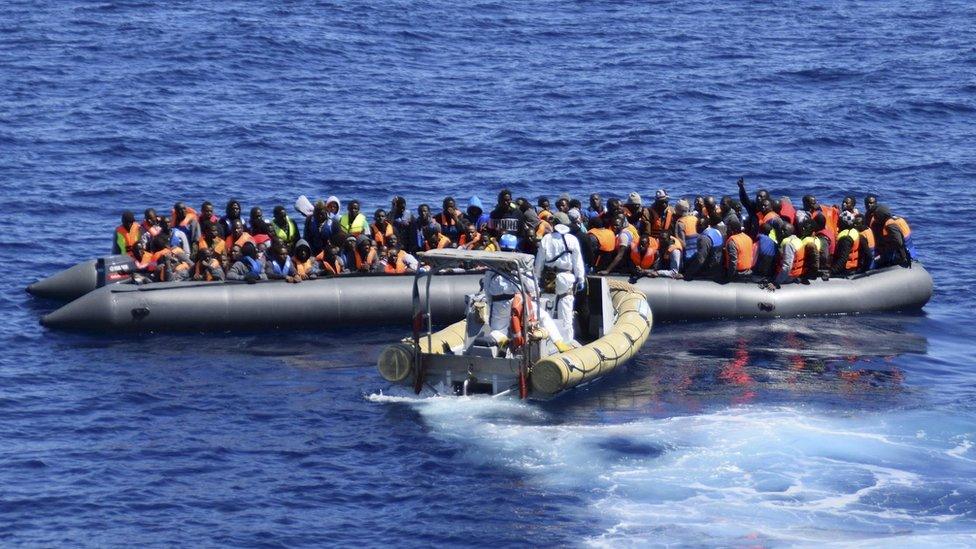
These migrants packed into a dinghy were among those rescued off Sicily on Monday
The president of the European Council has warned Italy and Malta of large numbers of would-be migrants in Libya.
Donald Tusk told MEPs, external that it would not be possible to apply the same approach used for the Balkans to unstable Libya.
Italy's coastguard says 4,000 people were rescued from the Mediterranean between Libya and Sicily on Monday and Tuesday.
Meanwhile, Macedonian police again fired teargas at migrants protesting at the border with Greece.
About 11,000 migrants and refugees have been camped out at Idomeni on the Greek side of the border since countries on the route to northern Europe through the Balkans closed their borders.
In Bulgaria, the interior minister urged the public not to mistreat migrants after footage of a vigilante group tying up several Afghans went viral.
The prime minister and senior border officials had initially welcomed the creation of civilian volunteer groups along the country's border with Turkey.
A deal between Turkey and the EU came into force last month with the aim of deterring migrants from making the risky sea crossing between Turkey and Greece.
Quentin Somerville in Libya: "It's hard to think of a more desperate place than here"
Migrants tell Quentin Sommerville why they are desperate to get to Europe
There are concerns that the efforts to shut down the Eastern Mediterranean route via Greece and the Balkans could encourage more people fleeing violence in Syria and Iraq to attempt the even more dangerous Central Mediterranean route via Libya.
However figures from the Institute of Migration show that those currently arriving in Italy from Libya are predominately citizens of African countries.
Italian authorities, giving details of the rescues carried out in the Straits of Sicily, said 2,154 migrants had been rescued from 16 dinghies and a rowing boat on Tuesday.
Former Nato Commander: "Libya will become ground zero for migrants"
Another 1,850 were rescued in the same area on Monday.
Mr Tusk told the European Parliament that there was no ideal solution to the migration crisis: "The deal with Turkey is not perfect and we are fully aware of its risks and weaknesses."
Regarding the Central Mediterranean route, the EU "must be prepared to help and show solidarity to Malta and Italy", he said.
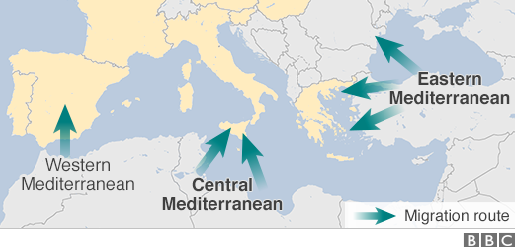
Austria has said it will tighten border controls at its frontier with Italy in anticipation of an increased number of migrants arriving there.
On Tuesday it began building a control centre at the Brenner crossing in the Alps.
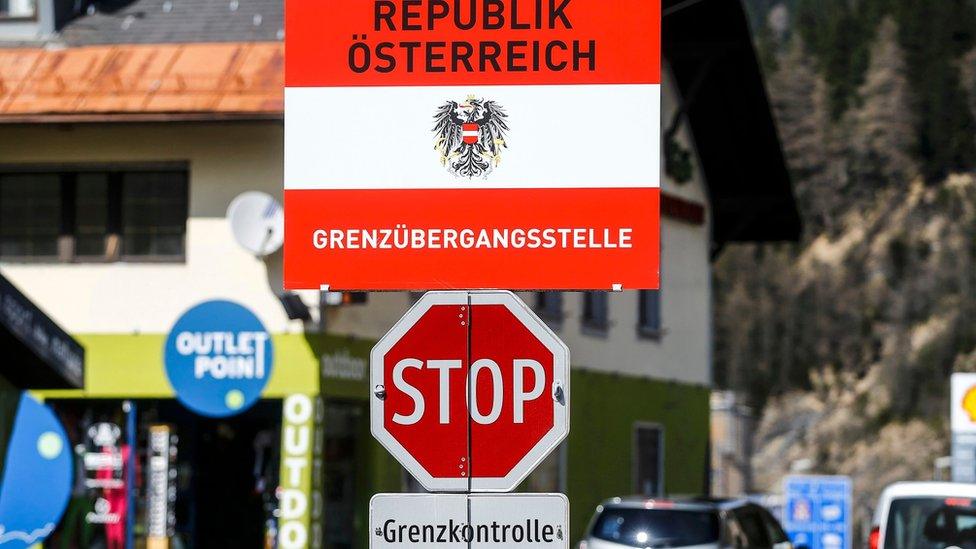
Austrian authorities are increasing controls at the Alpine border with Italy
The presidents of Croatia, Slovenia and Macedonia visited the Idomeni crossing on the Greece-Macedonia border earlier on Wednesday.
As they visited, police fired teargas and stun grenades at a group of around 1,000 migrants who were staging a protest.
There has been a wave of clashes at the crossing since violence first broke out on Sunday.
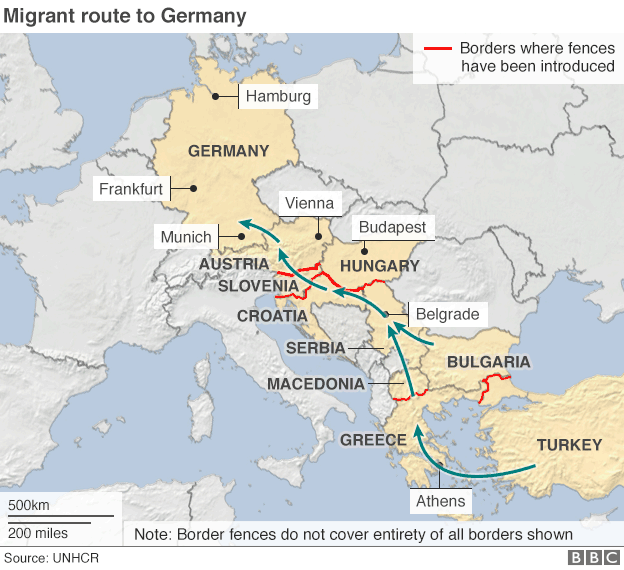
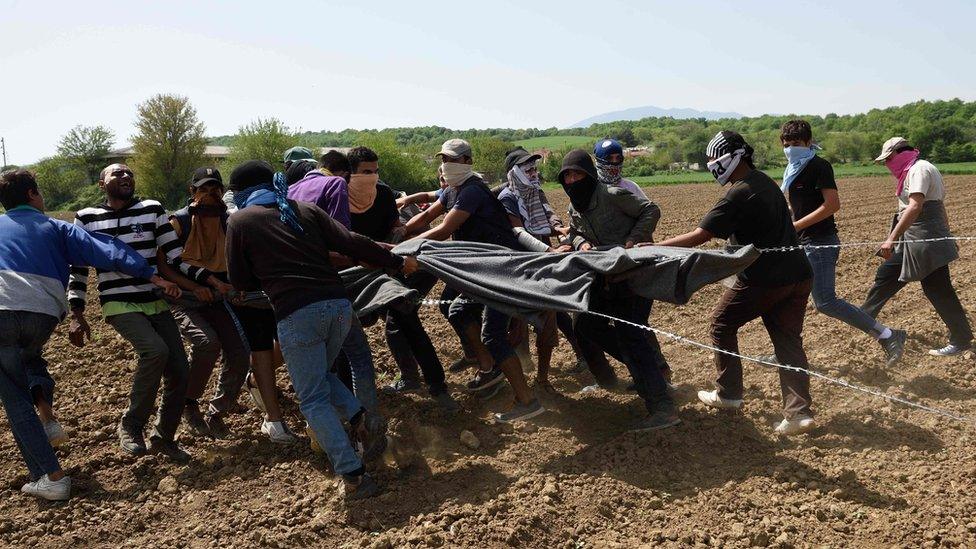
Migrants at the Greece-Macedonia border used blankets to try to pull barbed wire off the border fence
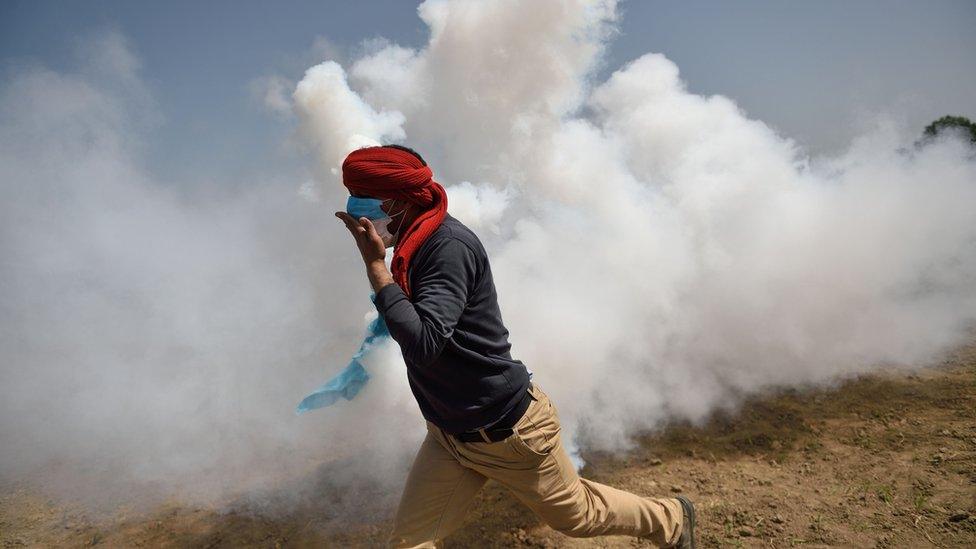
Tear gas was fired to break up the group

A note on terminology: The BBC uses the term migrant to refer to all people on the move who have yet to complete the legal process of claiming asylum. This group includes people fleeing war-torn countries such as Syria, who are likely to be granted refugee status, as well as people who are seeking jobs and better lives, who governments are likely to rule are economic migrants.